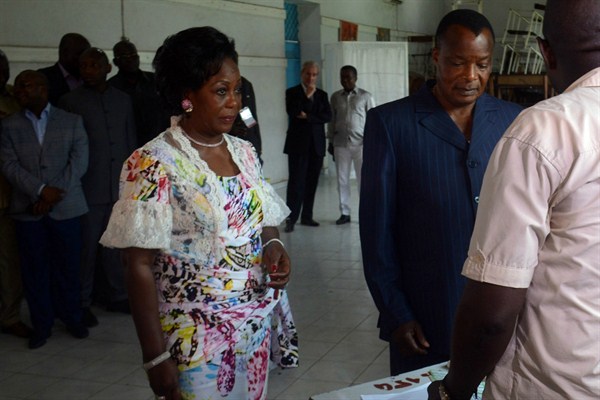The legislative and local elections currently taking place in the Republic of Congo are intended to complete the process of installing a new government following a deeply divisive constitutional reform process in 2015. But government critics believe the first round of voting that took place Sunday was significant for another reason: It highlighted, they say, authorities’ struggle to confront an array of social and security challenges as President Denis Sassou Nguesso’s political legitimacy weakens.
With the exception of a five-year span from 1992 to 1997, Sassou Nguesso has served as president of the central African nation since 1979. Facing term and age limits that would have barred him from staying in power, in 2015 he engineered the adoption of a new constitution. According to official results, the charter received the support of 92 percent of voters in a referendum that saw turnout of 72 percent—figures that were dismissed by the opposition as fantastical. In the days preceding the vote, multiple anti-referendum protesters were killed when, according to witnesses, police opened fire on them.
Sassou Nguesso followed the referendum with a presidential vote in March 2016. Again, official results suggesting a commanding victory for the president were rejected by his opponents, some of whom organized under the banner of the #Sassoufit collective—a play on Sassou Nguesso’s name and the French expression for “That’s enough.”

